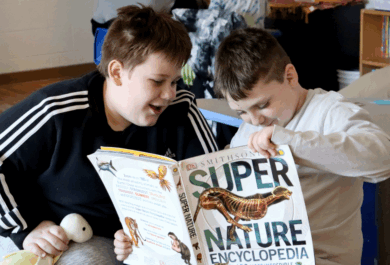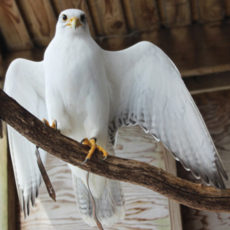Announcements

Green Chimneys’ approach focuses on an awareness of how trauma impacts human and animal lives, that a healing setting can benefit both, and that there is a broader parallel between human, animal, environmental and societal well-being.
The Sam and Myra Ross Farm & Wildlife Center primarily serves Green Chimneys School and the Residential Treatment Center with nature-based activities that are also infused into programs across the organization, including our summer camp, preschool, and community-based programs.
Animals and plants are incorporated into many settings, including Green Chimneys School, student residences, campus offices, and Putnam County youth program locations. Aviaries, mini-gardens, fish ponds and classroom tanks, nature and animal imagery in all student and administrative spaces, as well as an innovative program that permits staff to bring carefully screened personal dogs to work, further reinforce the Green Chimneys connection to plants, animals and the outdoors and incorporation of the natural world into services and environments.
Most children come to the Farm & Wildlife Center during their first days with their social worker, class, or dorm staff. All the animals are shared by everyone and they are collectively taken care of by the community. Interaction with the animals is never required, but everyone is encouraged to learn about and from them during the school day and after school.
For children who show a special interest, there is ample opportunity to spend extra time in the animal area of their choice; such interests are taken into account as clinicians, educators, and additional staff incorporate animal-assisted activities into programs and services. Students participate in animal care and many form strong and very profound relationships with individual goats, horses, or birds.
The trust and friendship that are established with a favorite animal, often becomes the basis for educational or social progress. The animals act as a bridge from the child to staff, to peers and can be catalysts to feeling successful. Many former students remember how supportive and life changing their friendship with an individual llama, goose or donkey were.
FAQ: How do these activities support education and therapeutic treatment for our students?

Crowned the best for falconry in medieval times, gyrfalcons were once reserved for kings. As the largest falcon in the world, with exquisite plumage ranging from bright white to deep charcoal, gyrs are revered for their powerful skill of flight. Their long wings make hunting waterfowl from 3,000-feet-high a feasible and fantastical feat. This falcon was flown in the sport of falconry for several years.